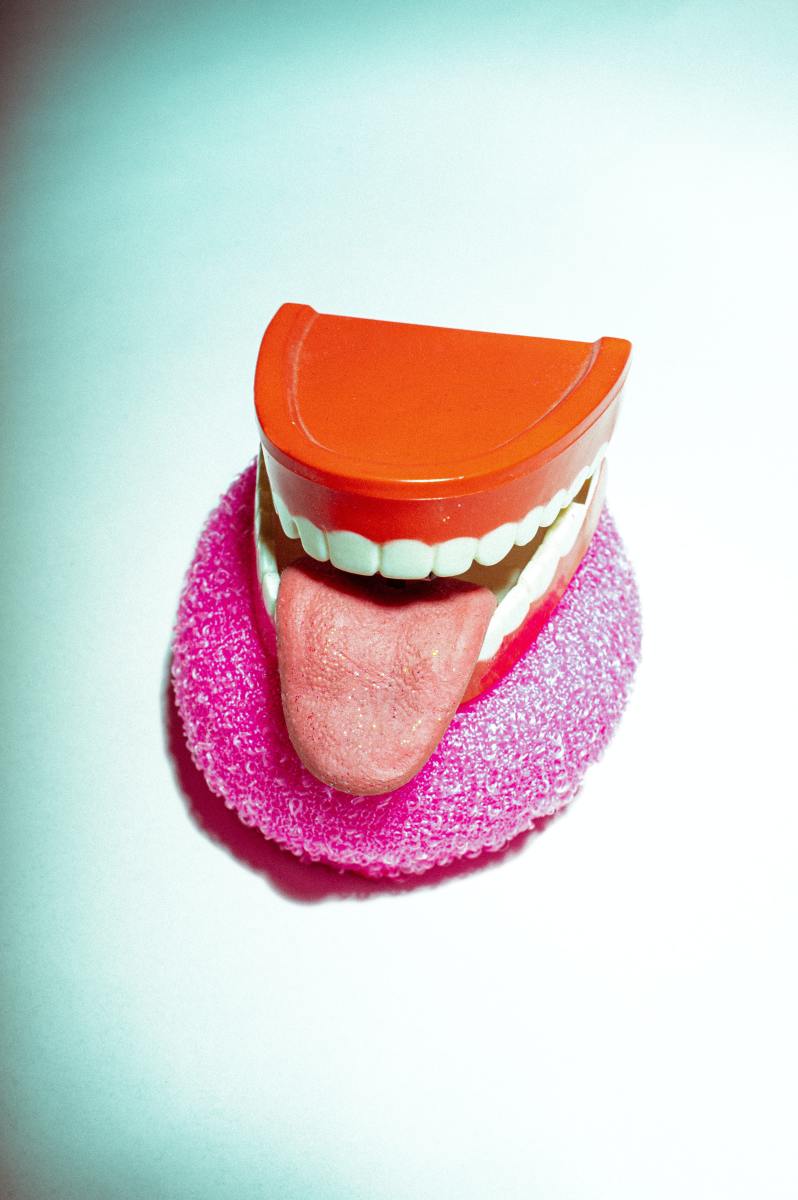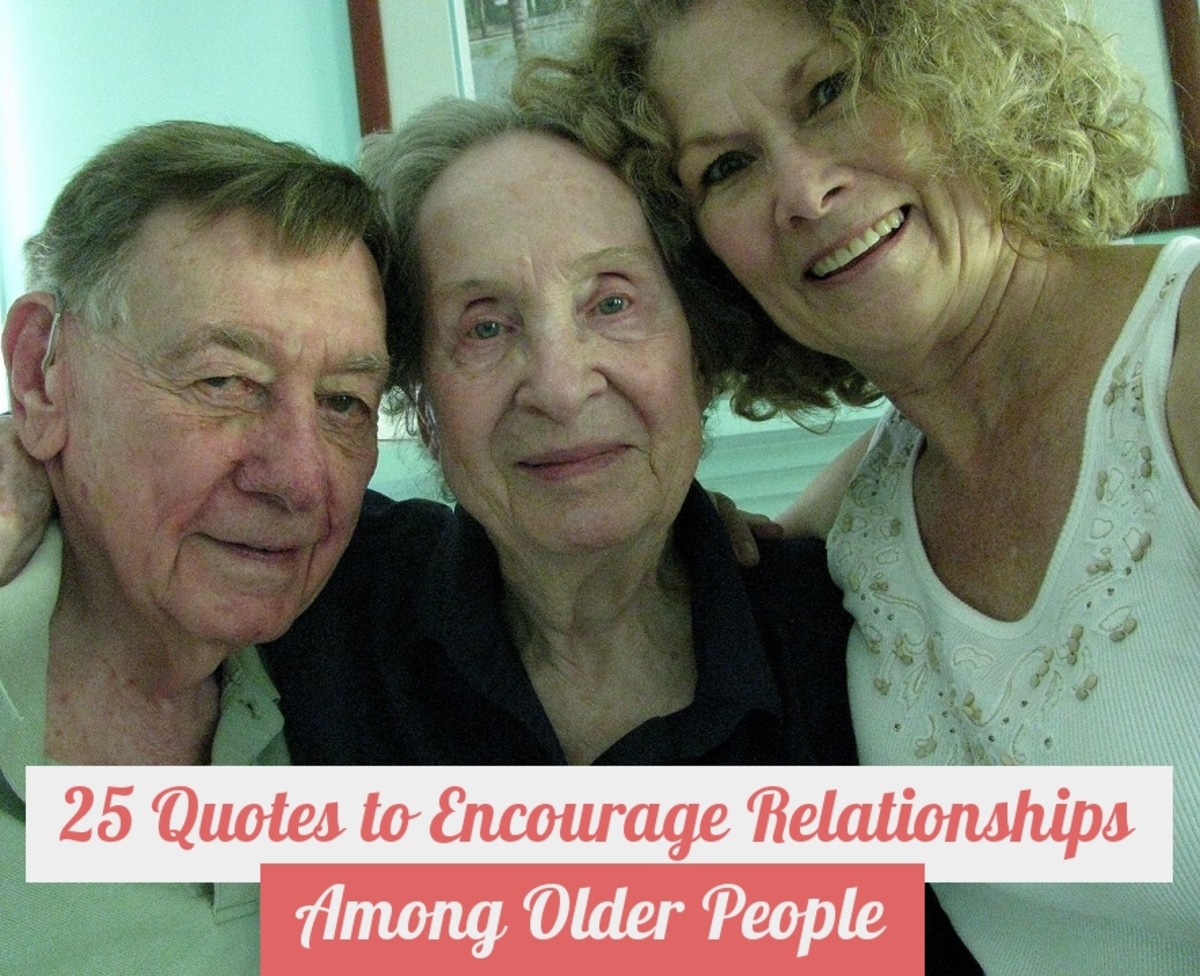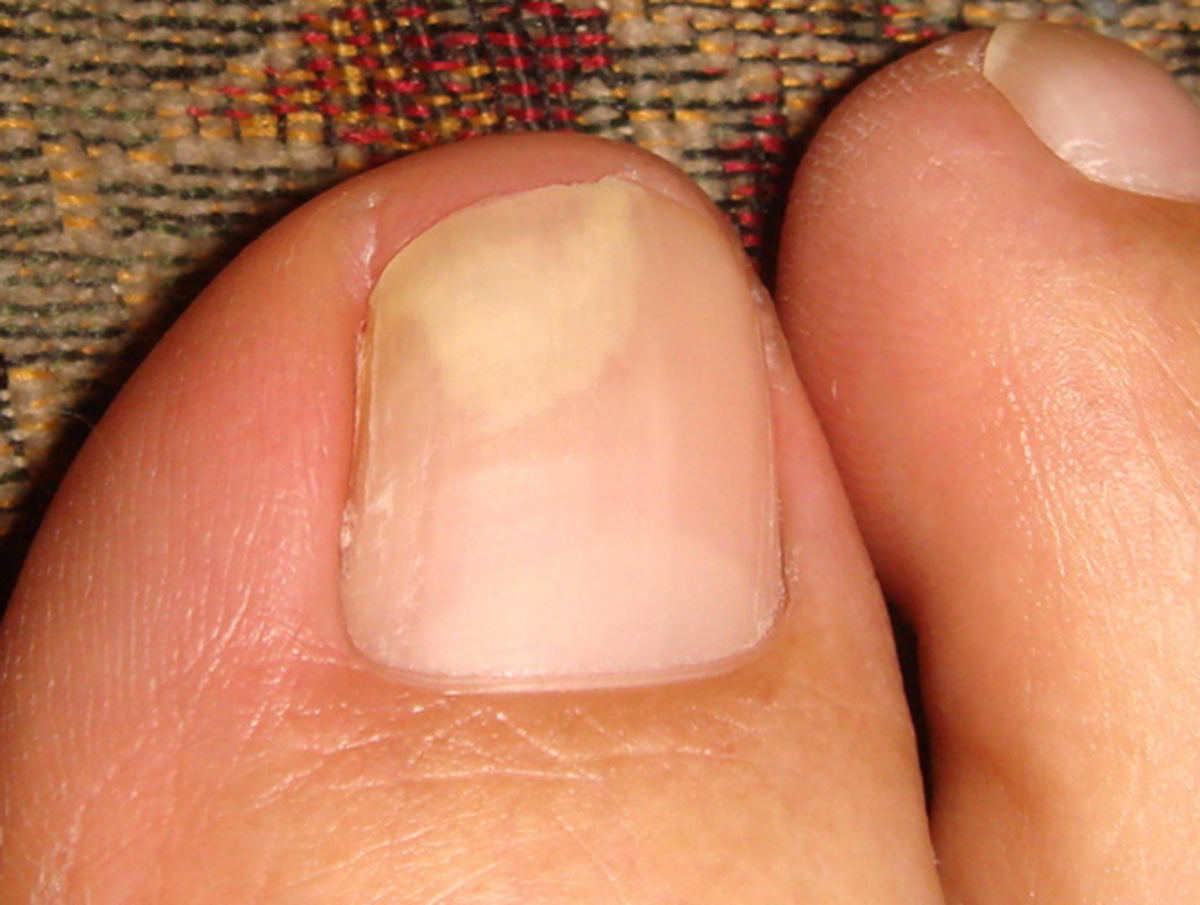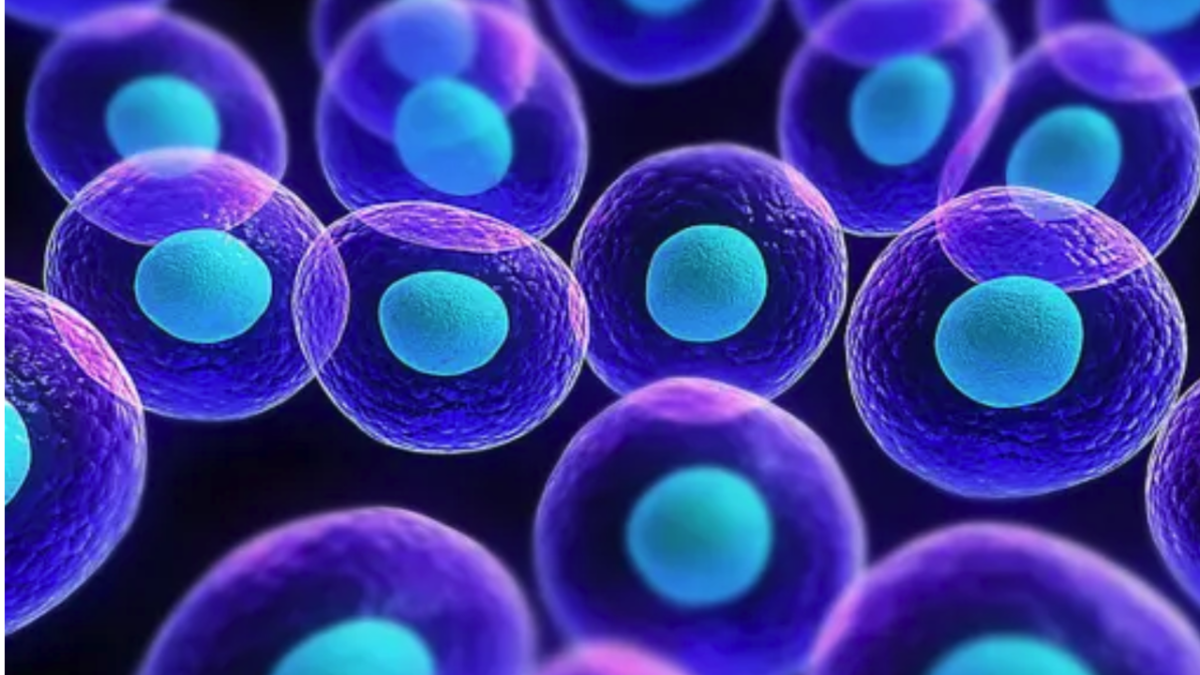Your Entire Body Changes When You Get Older
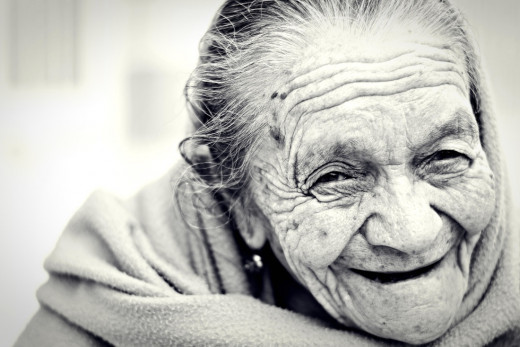
People live longer today than they did about a hundred years ago. The average life span used to be 47 years. Today, many men live to be at least 75, and women live to be at least 80. Living longer does not mean there will be no changes in the body.
When you approach your 60s, 70s, and 80s, do not think it is strange when you notice changes in your body. By that time, your body begins to shift and there are some obvious changes in your appearance as well as in your internal organs.
It is normal for your body not to feel and look like it did when you were younger. Some people embrace getting old while other people don't handle the aging process gracefully.
Experts call it “pure aging” when changes occur in the bodies of older people. The changes are normal and happen to every part of the body from the head to the feet. Of course, one's lifestyle plays a major part in the extent of the changes. There is absolutely no way to prevent pure aging. However, there are things to do to prepare for it.

Your Hair
Two major things happen to your hair as you age. You lose some of it, and what you keep will turn gray.
Your hair follicles have pigment cells that make melanin that gives the color you had when you were younger. As you age, the cells no longer make melanin. That means the stands of your hair turn to gray, silver or white.
You don't have to be old to go bald or lose some of your hair. However, you are more likely to do so when you are older.
Your Brain
As you get older, parts of your brain shrink and get smaller. Some parts of the brain slow down and it might be difficult to remember some things. You notice you can't remember people's names or a certain word when you are speaking or writing. You might react slower because the brain and nervous system lose nerve cells. The bottom line is that your memory gets worse as you grow older.
You might head to the kitchen for something. By the time you get there, you can't remember why you went there. You will discover that it is harder for you to stay focused. You are not alone. Those are normal changes that happen to all people when they get older.
Your Face
Your face and neck will change as you age. Your face will become flabby with a drooping appearance because of the loss of muscle tone and thinning skin. Sagging jowls may look like a person has a double chin. That's why so many people get facelifts.
Your face will no longer have a plump, smooth surface. That's because the skin on your face dries out and loses a layer of fat. Blotches and dark spots on the face increase. Wrinkles cannot be avoided.
Your Eyes
Some young people might have eye problems and need eyeglasses. However, it is normal for older people to have significant changes in their vision. They can no longer thread a needle or read the fine print on their medicine bottles.
The eye muscles are weaker in older people. A lot of older people give up driving at night because it is hard for them to see well enough for it to be safe.
Eyeglasses, eye drops or possibly surgery are remedies to help older adults see better.
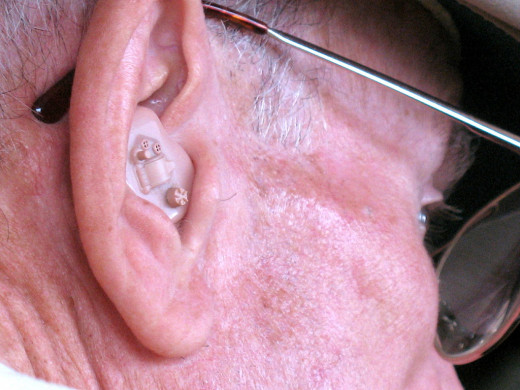
Your Ears
Your ears have two jobs. As you know, one job is hearing. You might not know the other job is to help you maintain balance. Your equilibrium is controlled by the inner ear. As you age, changes occur in the ear that decrease your ability to hear as you once did. Also, the changes in your inner ear may create problems for you as you sit, stand, and walk. That's why so many older people fall when there is no obvious reason for them to do so.
By the time you reach your 60s, you might begin to receive advertisements for hearing aids. You might not need them, but about one-third of adults ages 65-74 have hearing loss. About half of those over 75 must wear a hearing aid because they can't make out high-pitched sounds. Modern technology has made hearing aids smaller and more inconspicuous than the big and bulky ones people once wore.
Ears may lengthen in some people because of cartilage growth. Men may develop hair in their ears. Ear wax becomes drier because there are fewer wax glands and they produce less oil. The hardened ear wax can block the ear canal and affect the ability to hear.
Your Sense of Smell
Your sense of smell can lessen after age 70. A loss of nerve endings and less mucus production in the nose may cause your sense of smell to diminish.
Mucus helps odors stay in the nose long enough to be detected by the nerve endings, but when mucus lessens so does a person's sense of smell.
Your Teeth
Older adults are more likely to have dry mouth. It is not uncommon for them to wear dentures because of missing teeth. That's why dental care is very important to prevent gum disease and tooth decay.
Some older people have missing teeth and receding gums that make their mouth look shrunken.
Your Taste Buds
There may be some loss in your taste buds that happen when you age. That might mean you will enjoy food less because it just doesn't taste like it used to taste.
The average person has about 10,000 taste buds to recognize sweet, salty, sour, and bitter, flavors. The number of taste buds decreases as a person ages. The ones they have left begin to shrink. Around the age of 60, your mouth produces less saliva that causes dry mouth which affects your taste buds. Diseases, smoking and harmful particles in the air may have an impact on your sense of taste which can lessen your interest in eating. Sometimes it is hard getting older people to eat their food.
Your Heart
Your heartbeat was much faster when you were younger. You might have noticed that the beats of your heart have slowed down now that you are older. That means it is not pumping as it used to do. The walls have become thicker and valves are stiffer which have a great impact on the flow of blood. You might have irregular heartbeats.
You may get tired quicker than before because the heart is working harder due to the hardened, narrowed arteries or high blood pressure.
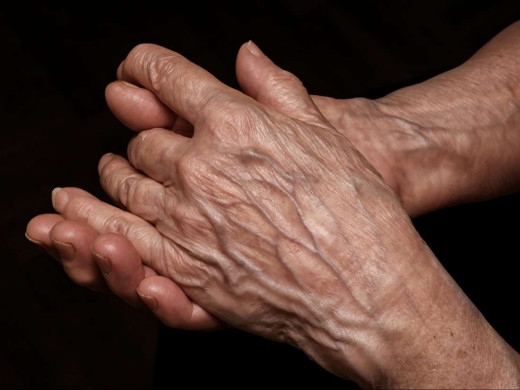
Your Skin
A sure sign of old age is the condition of your skin. As you get older, your skin becomes thinner with less elastic. It gets drier because it makes less oil and you don't sweat. Therefore your skin becomes wrinkled.
Age spots, moles, and bumps appear all over your skin, especially on your face and neck. Broken vessels sometimes can be seen through the thin skin, and your skin bruises easily.
It is not surprising that older adults have itchy and easily irritated skin. Your skin gets injured more easily because it is paper-thin. Scratches, scrapes, bruises, and cuts happen more often on thin skin. It takes longer for skin to heal when it is injured.
Your Metabolism
Metabolism slows down as people age. Even so, some older adults don't gain weight because they don't get as hungry or thirsty as they did when they were younger. Because older people eat less, they should make sure what they do eat is healthy and nutritious.
Older people should eat fruits, vegetables, whole grains, low-fat dairy, and lean protein. Older people might need vitamin B12 and vitamin D supplements.
Your Digestive System
Food doesn't move through your system as quickly as it once did because your digestion slows down when you age. Nutrients may not be absorbed as easily. Your stomach lining is more fragile because of the medications you are taking.
Constipation in older people might becomes a common problem. Eating healthier foods and getting more exercise might help with your digestive system.
Your Bladder
Your bladder can’t hold as much liquid as it once did, and the muscles that support it have lost some strength. Men and women might have an overactive bladder. That's why they might have to get up a couple of times during the night to use the bathroom.
Many women in their 60s have trouble with urine leaking. Prostate trouble affects many men when they are older which causes them to leak. Manufacturers offer adult diapers for both men and women.
Your Bones, Joints, and Muscles
Your bones and muscles become weaker as you age. About 1 in 4 women and men over 65 have osteoporosis. That's a bone-thinning disease. Older people often complain about stiff and painful joints.
People in their 70s might get shorter because they will lose an inch or two from their height because disks in their backs become flat.
Your Immune System
When you are older, your immune system does not fight disease as easily as it did when you were younger. Older people are more susceptible to illnesses and diseases because the body’s defenses have become weakened.
Some good news about your immune system is that autoimmune disorders are rare, and allergies are less severe in older adults.
Your Sleep
As you age, you might wake up more and have trouble going back to sleep. You will spend less time in a deep sleep. Insomnia might be an issue for some people in their 70s.
You might fall asleep and wake up earlier. Even so, you still need 7-8 hours of sleep every night. It is normal for older people to take naps during the day even when they are sitting in a chair.
Your Sexuality
More people in their 70s today are sexually active than in previous years, according to research. Health problems might be the reason some older people aren't as active. Vaginal dryness in women and erectile dysfunction in men might contribute to the lack of intimacy. Also, there might be a hormone deficiency. Older adults become more interested in companionship than in sexual intimacy.
How to Prepare for the Pure Aging Process
You cannot go back in time and become young again, but there are some things you can do to stay healthy and enjoy life as you age. It will help if you could maintain a healthy diet and exercise even if it is just a little. Keeping all doctors' appointments will also help with the aging process.
This content is accurate and true to the best of the author’s knowledge and does not substitute for diagnosis, prognosis, treatment, prescription, and/or dietary advice from a licensed health professional. Drugs, supplements, and natural remedies may have dangerous side effects. If pregnant or nursing, consult with a qualified provider on an individual basis. Seek immediate help if you are experiencing a medical emergency.


